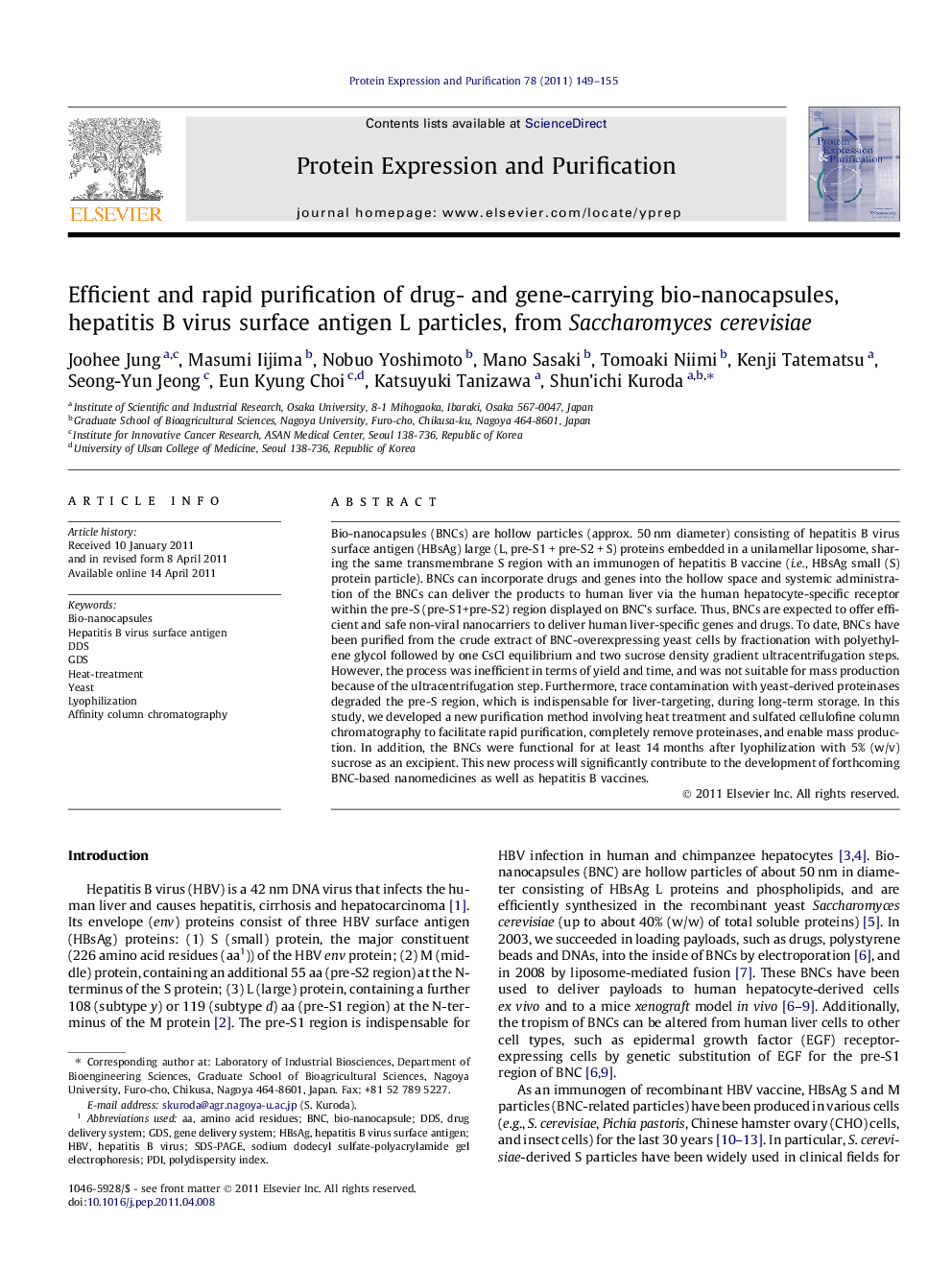| کد مقاله | کد نشریه | سال انتشار | مقاله انگلیسی | نسخه تمام متن |
|---|---|---|---|---|
| 2020885 | 1069215 | 2011 | 7 صفحه PDF | دانلود رایگان |

Bio-nanocapsules (BNCs) are hollow particles (approx. 50 nm diameter) consisting of hepatitis B virus surface antigen (HBsAg) large (L, pre-S1 + pre-S2 + S) proteins embedded in a unilamellar liposome, sharing the same transmembrane S region with an immunogen of hepatitis B vaccine (i.e., HBsAg small (S) protein particle). BNCs can incorporate drugs and genes into the hollow space and systemic administration of the BNCs can deliver the products to human liver via the human hepatocyte-specific receptor within the pre-S (pre-S1 + pre-S2) region displayed on BNC’s surface. Thus, BNCs are expected to offer efficient and safe non-viral nanocarriers to deliver human liver-specific genes and drugs. To date, BNCs have been purified from the crude extract of BNC-overexpressing yeast cells by fractionation with polyethylene glycol followed by one CsCl equilibrium and two sucrose density gradient ultracentrifugation steps. However, the process was inefficient in terms of yield and time, and was not suitable for mass production because of the ultracentrifugation step. Furthermore, trace contamination with yeast-derived proteinases degraded the pre-S region, which is indispensable for liver-targeting, during long-term storage. In this study, we developed a new purification method involving heat treatment and sulfated cellulofine column chromatography to facilitate rapid purification, completely remove proteinases, and enable mass production. In addition, the BNCs were functional for at least 14 months after lyophilization with 5% (w/v) sucrose as an excipient. This new process will significantly contribute to the development of forthcoming BNC-based nanomedicines as well as hepatitis B vaccines.
Journal: Protein Expression and Purification - Volume 78, Issue 2, August 2011, Pages 149–155